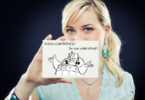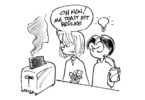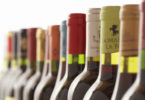Different ways to say yes in French…Here we go with the wee again!
Say yeah, uh-huh or nod your head; universal for yes, these gestures and small sounds speak of your approval. However, they neither carry a sentiment nor an emotion, leave alone enthusiasm. Think about the situation when practicing a new language or in a new country. Imagine wanting to sound excited about something and feeling like a child because your vocabulary was limited to just “yes”. French has the beautifully childish “oui (wee)” for a yes, but let’s not limit our enthusiasm to that.
Light up someone’s face, draw smiles from a crowd, and get appreciated for your efforts…with these simple nuances. Let’s play a little with the art of saying a heartfelt “Yes” in French.
Yes, I do!
For the ultimate yes in English to the question you popped our favorite little “Oui” works well. In that context, the emotion and tone of voice says it all.
Uhhh, yeah
Now, if it’s a question in another context that requires you to answer in a “yes” to a negative question, then “si” is used instead of “oui”. For example if someone were to ask you “Aren’t you hungry” (Tu n’as pas faim), your response would be si instead of oui (considering that you are hungry).
Psst…This replacement of si (positive) is simply because the questioner knows your answer but has an underlying implication or point.
Why yes, I’d love to!
Enthusiastic and passionate, this response lightens up the emotion. To show this passion in French you can respond “Ce serait super!” or just “Super” or “Avec grand plaisir“.
Yes, what are we waiting for?
Some situations call for an absolute statement. It’s an answer and yet it’s absolute and conclusive. Think of answering a question like “Voulez-vous que je confirme votre rendez-vous?”(Do you want me to confirm your appointment?). To answer with “absolutely”, your response should be “Absolument” (Ab-solu-mon).
Of course, certainly
A completely unreserved answer that says you are not only saying yes, but are doing it wholeheartedly. This answer implies that you are more than happy to do what is asked of you. So say someone asked you, “Pouvez-vous terminer ce travail d’ici demain?” (Will you finish this job by tomorrow?) To answer like it’s the most normal question you have been asked, reply “Bien sûr, ce sera fait” (Certainly, it will be done). Bien sûr = Of course.
Of course, no doubt about it
Chilling and somewhat polite. Whenever there is a question and you want to make sure there are no doubts about your answer, the response usually goes with the idea of “of course”. So to respond to a question like “Mais, êtes-vous sûr?” (But are you sure?), say “Oui, je suis sûr” (XXX, je su-ee) (Yes, I am sure).
It’s obvious
An “of course” with a stronger emotion along the lines of being confident and somewhat condescending. The response in French to a question in this context is usually limited to conversation between familiar people. The question could be in tune with “Etes-vous sûr que vous n’avez pas oublié la clé?” (Are you sure you didn’t forget the key?). You could respond saying “Ben oui, tu me prends pour un idiot ou quoi” (Obviously, do you take me for an idiot)
Exactly
Confirming and validating, almost like a confession. This yes in French is “Exactement” (Exact-amo). So to answer to a context like, “Je pense que c’est vrai” (I think this is right) all you need to say is “Exactement”.
Have fun flaunting your “yes” in French. Ouiiiii!!
Like this?









